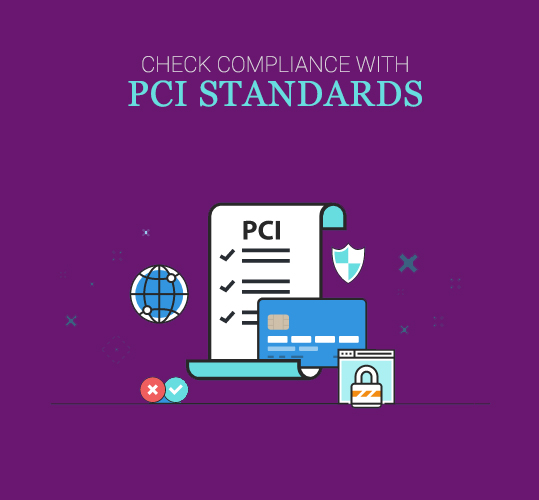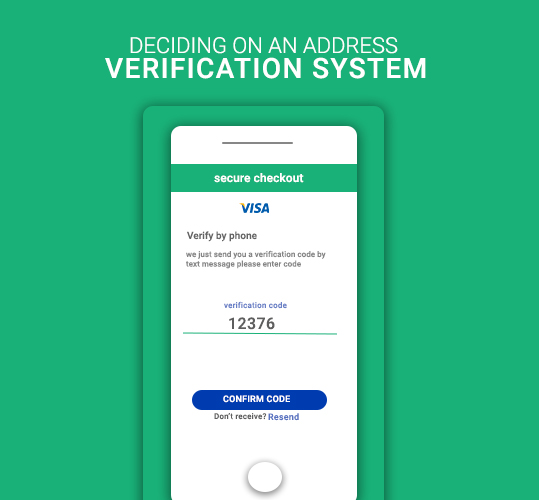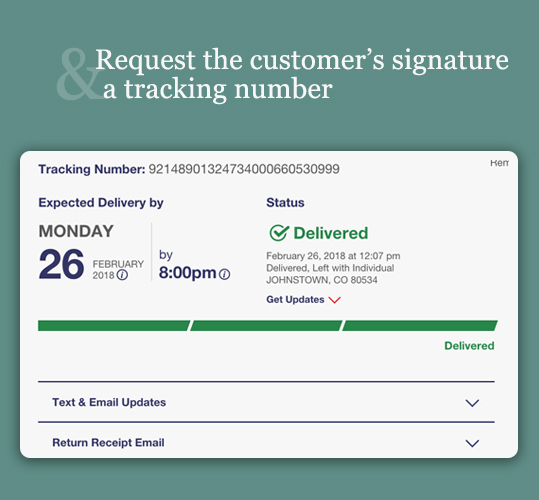Have you already launched your online store? If so, then, beware of hacker attacks!
Online frauds are sure to occur, and that’s why cybersecurity is vital for every business, especially for ecommerce stores. Unlike the other business sites, ecommerce stores have a massive database of its own as well as of their customers.
When customers are purchasing certain products from your store, they are trusting you with their details like name, contact details, address as well as credit card & debit card details. So, you must keep your site secure and safe against all the risks of hacking and phishing.
In case, customers face any credit card frauds happening after transactions via your site, your reputation as a brand will be at risk. To protect your database, it’s best to keep your website updated with all the security patches and pay attention to your daily transactions.
Who’s at risk of online fraud?
The businesses that don’t update their site are surely at risk. Since the enterprise-grade companies mostly opt for the paid security options as well to protect their site, they are less prone to cyber fraud risks. Whereas, small businesses with the minimum budget often don’t consider so much about security. It’s a common thought that you have a small business and who going to be interested in attacking such a site.
But that’s a false notion! Hackers do consider this thought process and attack numerous small business vendors to make most of the benefits. By introducing the most recent security fixes on your webpage, you can safeguard the site from the attacks of malignant software and along these lines,
The Association of Certified Fraud Examiners says, practically half of the private ventures succumb to fraud sooner or later in their business lifecycle, charging them a normal of $114,000 per event. Besides phishing and hacking, if you acknowledge a false payment, you could be considered monetarily answerable for the misfortune. Managing a fake transaction, the chargeback procedure, and the potential hit to your organization’s notoriety is upsetting, without a doubt. Fortunately, there are several steps you can opt-out on a limb to help limit the risks and shield yourself and your clients from digital frauds.
Types of web store frauds
Before we talk about what you can do to limit the risk and seek for ways to shield your ecommerce store from fraud, it’s useful to comprehend regular strategies that scammers use. There are numerous types of ecommerce fraud, yet they can be comprehensively classified in the accompanying two categories:
Record takeover: Most eCommerce stores furnish clients with accounts that store individual data, monetary information, and purchase history. Attackers regularly hack into these records through phishing ideas. In one of the most widely recognized strategies, fraudsters send messages to fool customers into uncovering usernames and passwords. They, at that point, sign in to your clients’ records, change the passwords, and make unauthorized deals. The utilization of bots has likewise been utilized to acquire private data from clients.
Identity fraud: Although most organizations play it safe and they verify client information, swindlers still figure out the ways to hack the databases and take usernames, passwords, Mastercard numbers, and other personal data of individuals.
Hackers regularly sell Mastercard numbers to different scammers, who, at that point, open records with ecommerce vendors and utilize the taken numbers to pay for buys. This kind of ecommerce fraud is hard to identify because numerous individuals don’t check their financial records completely — and because unfortunate casualties ordinarily have no clue that somebody opened an online record in their names.
How to prevent credit card frauds?
Now, we are listing the steps to be taken to prevent credit card frauds at your store.
1. Check Compliance with PCI standards

First things first, when you are setting up online payment options at your store, you must check the compliance with the Payment Card Industry security standards. These measures and guidelines are essentially designed to avoid the occurrence of fraudulent transactions. For more details about the PCI standards, it’s better if you check through the site and go thoroughly through the guidelines.
2. Utilize the right tools and processes
The risk is surely there, but if you select the right set of tools, you can thrive in the attack situation. When a secure shell layer of https is the first and foremost thing, there are numerous tools that you can check to protect your business and your customer’s database. You can connect with the Builderfly customer support team to check if your site can be progressively secure.
3. Constraining the amount that can be spent in a day
We know that you love to have a huge number of orders in a day. But, a single genuine order is far better than ten fake orders. To limit the count of fake orders, you can limit the count of orders for any commodity that can be placed on your store. It has been observed that mostly the fraud orders are placed in fashion or the huge amount paid in a single go. By limiting the amount spent by a single user over limited tenure, you can limit the chances of occurrence of frauds.
4. Monitor your daily transactions
Monitoring the purchasing behaviors of your most regular clients is likewise a decent option to avoid online frauds. You can screen your client’s record for any conflicting amount and dispatch issues. These must be considered as warnings, and as a preventive measure, you should check the physical area of the client. Some tools can recognize the IP locations of the clients, and you can check if that is situated in any nation that is a base of the fraudsters.
5. Deciding on an address verification system

You can match the shipping address and the location in the records of the Visa organization. Leveraging the IP address verification technique, you can check and restrict the transaction in mid. You can ask for the identity proof to let the transactions proceed further. You must consider this factor, especially in the case of expedited shipping. You can limit the access of the external servers to your site, especially from the locations where you have restricted. In some cases, distinctive charging and delivering addresses simply imply that your client is buying a present for somebody from your site and in this manner, sending it to another shipping location. This consistently doesn’t mean fraud; however, when the charging sum is excessively enormous; at that point, you should call the customer to verify the purchase via their telephone number.
6. Compulsory use of CVV
Probably the best technique to counteract the event of online fraud is by making it necessary to record the CVV. It is the three or four-digit codes that are imprinted on the backside of the credit or platinum cards. One beneficial thing to specify here is that PCI averts putting away the CVV code. Along these lines, it won’t be put away in your database. Presently, this makes it unattainable to the programmers and fraudsters as they don’t have your client’s physical credit or charge card in their grasp; thus, they won’t gain admittance to the CVV code. In this manner, the obligatory utilization of CVV code in each transaction makes it an exceptionally viable safety effort.
7. Create strong passwords
When it comes to creating an account on any of the ecommerce store or anywhere, it is a usual practice that people keep the name or contact number as a password. These are easier to remember, but they are also easier to guess.
To keep the account secure, you can create the rules for setting up the password. To create strong passwords, the password setup includes a combination of capital letters, small alphabets, numeric digits as well as special characters. You can mention the minimum digits required in any password.
Numerous sites ask their users to maintain these rules to secure the password. Such a combination of passwords is quite tough to guess, thus reduces the chances of fraudulent attacks.
8. Keep your site updated
Probably the best measure to take in protecting your eCommerce website, so no hacking occurs at all, is to keep your site updated. You may be thinking about how this can be accomplished. There is an explanation that you are encouraged to normally update your site and ensure that your site is well-furnished with all the fundamental security patches. Keeping your site fully updated is the ideal approach to shield it from the most recent viruses and malware attacks.
By introducing business-grade security tools against malware, you can protect your site. If you are running your site on the Builderfly ecommerce platform, update your site to the latest updated. This is, at present, the best ecommerce platform accessible and affordable for businesses of all sizes. It’s well-outfitted with all the fundamental propelled security highlights.
9. Block the acceptable number of declined transactions
You can restrain the number of mistaken endeavors. There should just be a set number of transactions permitted. This will help in restricting the odds of any fake transactions because, for the most part, these sorts of transactions are directed utilizing malignant programming that utilizes diverse credit cards in progression.
10. Request the customer’s signature and a tracking number

A tracking number is required as confirmation that an order is delivered. Taking the client’s signature after conveying the bundle will assist you with giving the evidence to your genuine client if any such occurrences of fraud occur.
11. Be attentive to any dicey email address used to create an account on your site
Last yet not least, watch out for suspicious-looking email accounts. Browsing the email address that has been utilized in submitting the requests is useful. Any email address conveying numbers and letter sets in arbitrary requests is a warning.
Conclusion
The vast majority of the online business sites store personal information of their clients like name, address, and Mastercard subtleties. This is to facilitate the ease in purchasing procedures from their sites, and the clients are not required to put their details each time they decide to buy from you. This implies enlisting an ecommerce site improves system to keep up your site and is a vital update toward shielding your site from any digital attacks. Visa fraud is normal, yet it tends to have stayed away from. Keeping your site kept up with included layers of security, you can guarantee that no such occurrences happen. All the previously mentioned tips are important to pursue on the off chance that you wish to defend the transactions occurring through your site. It’s in every case better to remain safe by consistently refreshing to the most recent variants of the product. These updates incorporate security patches. Security patches are indispensable because they anticipate any rupture on your site.







